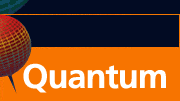CONTACTS
- Coordinator
Adolfo del Campo
-
Quantum Lunch Location:
T-Division Conference Room, TA-3,
Building 123, Room 121
 |


Quantum Institute: Visitor Schedule
The Quantum Lunch is regularly held on Thursdays in the Theoretical Division Conference Room, TA-3, Building 123, Room 121.
The organizing committee includes Malcolm Boshier (P-21), Adolfo del Campo (T-4 & CNLS), Michael Di Rosa (C-PCS), Armin Rahmanisisan (T-4 & CNLS), Changhyun Ryu (P-21) , Nikolai Sinitsyn (T-4), Rolando Somma (T-4), Christopher Ticknor (T-1), and Wojciech Zurek (T-4).
For more information, or to nominate a speaker, contact Adolfo del Campo.
To add your name to the Quantum Lunch email list, contact Ellie Vigil.
Thursday August 28, 2014
12:30 PM - 2:00 PM
Speaker: Paul Julienne (Joint Quantum Institute, NIST and the University of Maryland, College Park, MD, USA)
Technical Host: Chris Ticknor
TOPIC: Universality in cold molecular collisions
Abstract
As sources of cold molecules become available, the question of the character of cold molecular collisions naturally arises [1]. While cold atomic collisions have been widely studied and understood, with magnetically tunable Feshbach resonances offering a highly successful source of control, the greater complexity and number of degrees of freedom in molecular collisions make them much more difficult to treat theoretically. Consequently, it is worthwhile to examine to what extent the concept of "universality" may apply to collisions between cold molecules and atoms or other cold molecules, where "universal" is defined here to mean independent of the complicated and unknown details of short-range interactions between the colliding species. This talk gives three examples of such "universality" that will be useful in understanding cold molecular collisions and "chemistry." One example is "van der Waals universality" in the three-body recombination of three cold atoms to make a molecule. In this case a model using known parameters of two-body tunable Feshbach resonances plus the long-range van der Waals interactions among 3 atoms is sufficient to calculate three-body recombination rates at all scattering lengths without needing fitting parameters [2]. Another example is the universal reaction or relaxation rates of two molecules with unit probability of short-range dynamics that results in the loss of two cold molecules. Reaction rates are then universally determined by long-range threshold dynamics of the colliding molecules. The reactive collisions of ultracold KRb molecules exhibit such universality [3], which is expected to characterize a wide class of cold molecular collisions [1]. Finally, recent work has suggested that collisions of cold atoms [4] or molecules [5] may be characterized by statistical universality associated with a high density of resonance states of the collision complex of the two species.
This work has been supported by an AFOSR MURI.
1. G. Quéméner and P. S. Julienne, Chem. Reviews 112, 4949-5011 (2012).
2. Y. Wang and P. S. Julienne, Nature Physics, online Aug. 24, 2014 (arXiv:1404.0483).
3. Z. Idziaszek and P. S. Julienne, Phys. Rev. Lett. 104, 113202 (2010)
4. B. Gao, Phys. Rev. Lett. 105, 263203 (2010)
5. A. Frisch, M. Mark, K. Aikawa, F. Ferlaino, J. L. Bohn, C. Makrides, A. Petrov and S. Kotochigova, Nature 507, 475 (2014).
6. M. Mayle, B. P. Ruzic, and J. L. Bohn, Phys. Rev. A 85, 062712 (2012).
|


